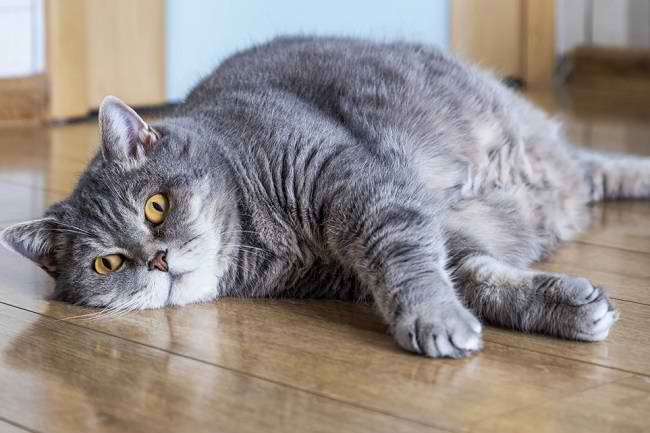Obesity in Cats, Causes and Complications
As a cat owner, you need to know the causes of obesity in cats. The reason is, cats with excess weight have a higher risk of developing various diseases, you know. To find out the causes of obesity in cats, let's, see the discussion below.
Obesity is a condition of excess body weight that can be experienced by humans and animals, including cats. A cat can be said to be obese when its weight is 20% greater than its ideal weight. As a guide , the ideal weight of an ordinary cat is about 3.6–4.5 kg. Well, a cat can be called obese if its weight is above 4.3–5.4 kg. However, these criteria may vary depending on the breed of cat.
As a guide , the ideal weight of an ordinary cat is about 3.6–4.5 kg. Well, a cat can be called obese if its weight is above 4.3–5.4 kg. However, these criteria may vary depending on the breed of cat.
Causes of Obesity in Cats
There are several factors that can increase the risk of obesity in cats, including:
1. Age
One of the causes of obesity in cats is age. Cats aged 8–12 years are more likely to be overweight than younger cats.2. Castration
In addition to the age factor, neutering or sterilizing cats can also make cats more susceptible to obesity. This is because neutered cats tend to have a higher appetite than non-neutered cats.3. Rarely moves
Cats that are often indoors are more at risk of developing obesity than cats who are active and often play outdoors. Lack of physical activity causes the number of calories to enter is greater than the number of calories burned in the cat's body.
As a result, excess calories will accumulate into fat tissue in the body, so that the cat becomes overweight.
4. Overeating
As with humans, giving too much food is at risk of causing a cat to become obese. To prevent this, you need to pay attention to the schedule and amount of feeding your beloved pet.To keep your cat healthy and at an ideal weight, you can feed him 1-2 times a day at a rate that is appropriate for his age. Also, avoid giving your cat foods that are high in sugar, fat, or high-calorie foods, such as ice cream, chocolate, and cake or bread.
Complications in Obese Cats
In addition to making your cat lazy and difficult to move, obesity in cats can also increase the risk of various serious diseases, such as:
Diabetes
Cats who are obese are at a higher risk of developing diabetes. This is because being overweight or obese and a poor diet can cause your cat to develop insulin resistance.
Breathing problems
Excess body weight can cause narrowing and swelling of the airways. This is what causes your beloved pet to have difficulty breathing and is at risk of developing respiratory diseases.Heart disease
Some research suggests that obese cats have a higher risk of heart disease when compared to normal-weight cats.
This is thought to occur because obesity is closely related to an increase in the amount of bad cholesterol (LDL). If the amount of cholesterol is excessive, this bad fat can accumulate and clog the blood vessels in the heart or other organs in the cat's body.Joint disorders
The heavy body weight can put excessive pressure on the bones and joints. This makes obese cats can develop joint disorders, such as arthritis. When experiencing this, a cat can become increasingly lazy to move or play because the joints hurt when moved.In addition to the various diseases above, obese cats are also at risk for other diseases, such as cancer and bladder stones.
Obesity in cats can actually be prevented from the start. You can start limiting the provision of food and snacks to your beloved pet. Feeding should be given in portions that are appropriate for your cat's age.
In addition, you are also advised to invite your cat to stay active and move around often. This can prevent him from obesity.By knowing the various causes of obesity in cats, it is hoped that you can be wiser in caring for your beloved pet. If you still have questions about the appropriate feeding portion for your cat's age, don't hesitate to consult a veterinarian.
Label :
Comments
Post a Comment